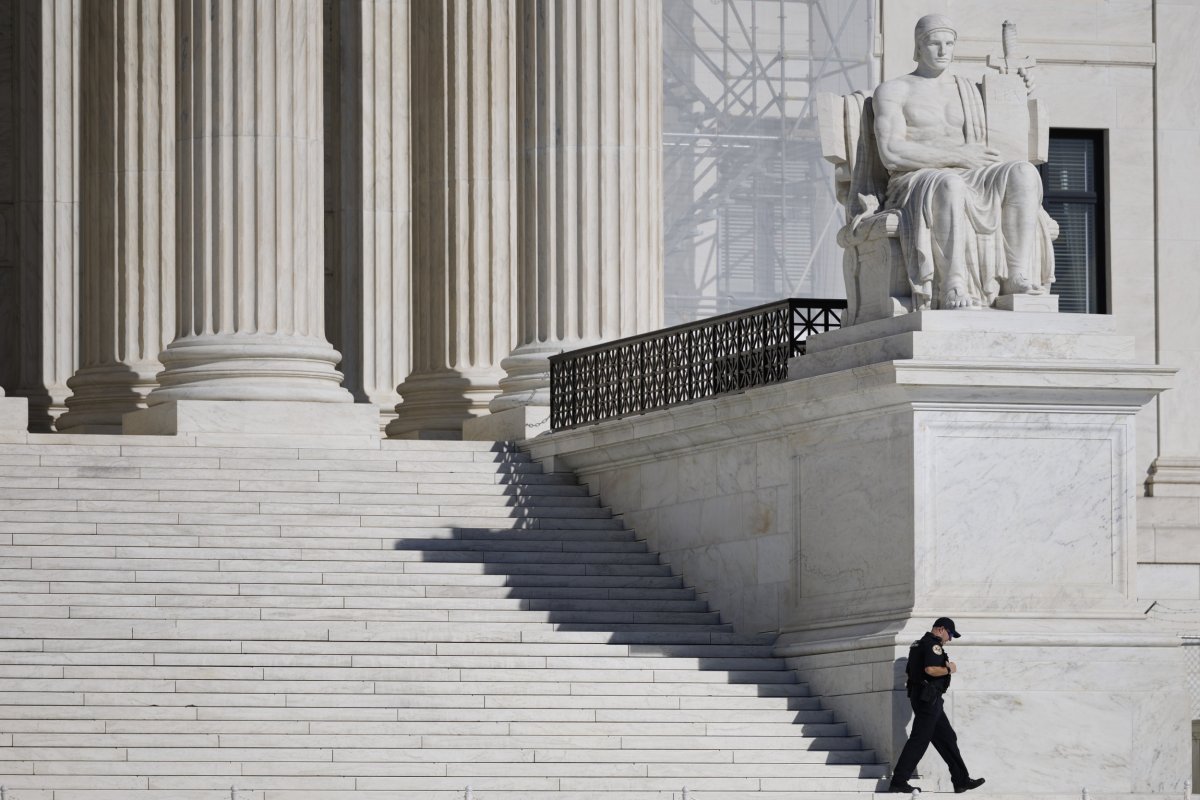More Women Charged With Pregnancy-Related Crimes Since Roe’s End
Most of the cases involved accusations of child abuse, neglect or endangerment in which the fetus was listed as the victim.
More women have been charged with other pregnancy-related crimes since the overturning of Roe v. Wade in 2022, a new study has found.
Most women were not accused of violating abortion bans, but were instead accused of child abuse, neglect or endangerment in which the fetus was listed as the victim.
In the year after the U.S. Supreme Court ended the nationwide right to abortion in its Dobbs v. Jackson Women’s Health Organization ruling, at least 210 women across the country were charged with crimes related to their pregnancies, according to the report released by Pregnancy Justice, an advocacy organization.
This is a higher number recorded in research projects than any other 12-month period since 1973.

Tom Brenner/Getty Images
Most cases involved allegations of substance use during pregnancy, including 133 where women were accused of this crime only.
Most charges did not require proof that the baby or fetus was actually harmed.
One of the most shocking cases involved a woman who delivered a stillborn baby at her home six or seven months into her pregnancy, said Wendy Bach, a professor at the University of Tennessee College of Law and one of the lead researchers on the project.
She described how when the woman tried to make funeral arrangements, the funeral home alerted authorities and the woman was charged with homicide.
This was one 22 cases in the study that involved the death of a fetus or infant.
“It’s an environment where pregnancy loss is potentially criminally suspect,” Lourdes Rivera, president of Pregnancy Justice, said in an interview.
Bach pointed to the news reporting last week about two Georgia women whose deaths a state commission linked to the state law that bans abortion in most cases after the first six weeks of pregnancy. The family of one of them, Candi Miller, said she was avoiding seeking medical treatment after she took abortion pills for fear of being accused of a crime.
States with abortion bans—including 14 that bar it at all stages of pregnancy and four, such as Georgia, where it’s illegal after about the first six weeks—have exceptions for women who self-manage abortions. But Bach said that women seeking abortions have been charged with other crimes.
“She did not want to seek help because of her fear that she would be prosecuted,” Bach said in reference to Candi Miller. “That is a really realistic fear.”
Most of the charges brought against women did not specifically mention abortion restrictions.
One case that did allege violations of an abortion ban, was regarding a law that was later overturned.
Four cases involved abortion-related allegations, including evidence that a woman who was charged had abortion pills.
The majority of cases were from two states: Alabama with 104 and Oklahoma with 68.
There were 10 cases in South Carolina.
Rivera pointed to the fact that the supreme courts in all three states have issued opinions recognizing fetuses, embryos or fertilized eggs as having the rights of people.
“We really need to separate health care from punishment,” Rivera said. “This just has tragic endings and does not properly address the problem. It creates more problems.”
This article includes reporting from The Associated Press
fairness meter
About the writer

- Newsweek magazine delivered to your door
- Newsweek Voices: Diverse audio opinions
- Enjoy ad-free browsing on Newsweek.com
- Comment on articles
- Newsweek app updates on-the-go

- Newsweek Voices: Diverse audio opinions
- Enjoy ad-free browsing on Newsweek.com
- Comment on articles
- Newsweek app updates on-the-go
Source: Newsweek





Leave a Reply